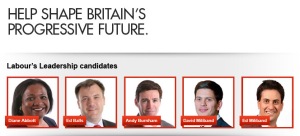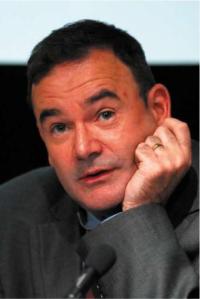 As a teenager in London in the mid-90s, everyone I knew was anti-Tory. It was the fag-end of the John Major era, and amidst a sea of sex and corruption scandals the Tories had saved some of the most damaging measures for last, privatising the industries Thatcher hadn’t dared to: electricity, railway and prisons, and continually stigmatising single mothers, gays and lesbians and the ‘undeserving poor’. Though we were too young to remember the mass unemployment, miners strike and poll tax from the Thatcher years, the memories were fresh enough in the minds of our parents to impart to us a strongly anti-Tory outlook. The signs of public sector degradation were pretty apparent even to teenagers – parks and schools were all seriously run down after years of underfunding and libraries and sports centres were opening for fewer days each year. It was a mark of decency, of normality to oppose a tired, malicious government that was totally out of step with the growing trend towards social liberalism. To admit to being a conservative was a minor taboo – tantamount to admitting that you were well off and everyone’s else could go to hell. In our school mock election I think the Tories received about 8 votes out of 900 – and I suspect the affiliations of our parents were only slightly less one sided.
As a teenager in London in the mid-90s, everyone I knew was anti-Tory. It was the fag-end of the John Major era, and amidst a sea of sex and corruption scandals the Tories had saved some of the most damaging measures for last, privatising the industries Thatcher hadn’t dared to: electricity, railway and prisons, and continually stigmatising single mothers, gays and lesbians and the ‘undeserving poor’. Though we were too young to remember the mass unemployment, miners strike and poll tax from the Thatcher years, the memories were fresh enough in the minds of our parents to impart to us a strongly anti-Tory outlook. The signs of public sector degradation were pretty apparent even to teenagers – parks and schools were all seriously run down after years of underfunding and libraries and sports centres were opening for fewer days each year. It was a mark of decency, of normality to oppose a tired, malicious government that was totally out of step with the growing trend towards social liberalism. To admit to being a conservative was a minor taboo – tantamount to admitting that you were well off and everyone’s else could go to hell. In our school mock election I think the Tories received about 8 votes out of 900 – and I suspect the affiliations of our parents were only slightly less one sided.
It’s not that everyone was pro-Labour – as early as 1994-95 Tony Blair was being accused of selling out, and Liberal Democrats were already gaining in popularity. The situation was simply this – there was broad body of people who knew that, above all, we had to get the Tories out – and while this wouldn’t in itself change the world, nothing could start to improve until we’d taken this basic first step. This culminated in the 1997 election, as the concerted effort deprived so many hated moralisers, privatisers and destroyers of public services of their seats. It was a victory of pragmatism over utopianism – with extensive tactical voting boosting the non-Conservative parties, and left wing voters backing a Labour leadership which they already knew had rejected socialist values. The priority was to kick out the Tories – everything else was secondary. Continue reading


